Why you can trust Tom's Hardware
Comparison Products
We compare Cigent’s K2 Secure SSD against some of the best and most secure portable SSDs available. The list includes the SanDisk Extreme Pro v2, the WD_Black P50, LaCie’s Rugged SSD, G-Technology’s ArmorLock, and Samsung’s X5. We also included the Samsung T7 and a WD My Passport SSD for good measure.
Game Scene Loading - Final Fantasy XIV
Final Fantasy XIV Shadowbringers is a free real-world game benchmark that easily and accurately compares game load times without the inaccuracy of using a stopwatch.
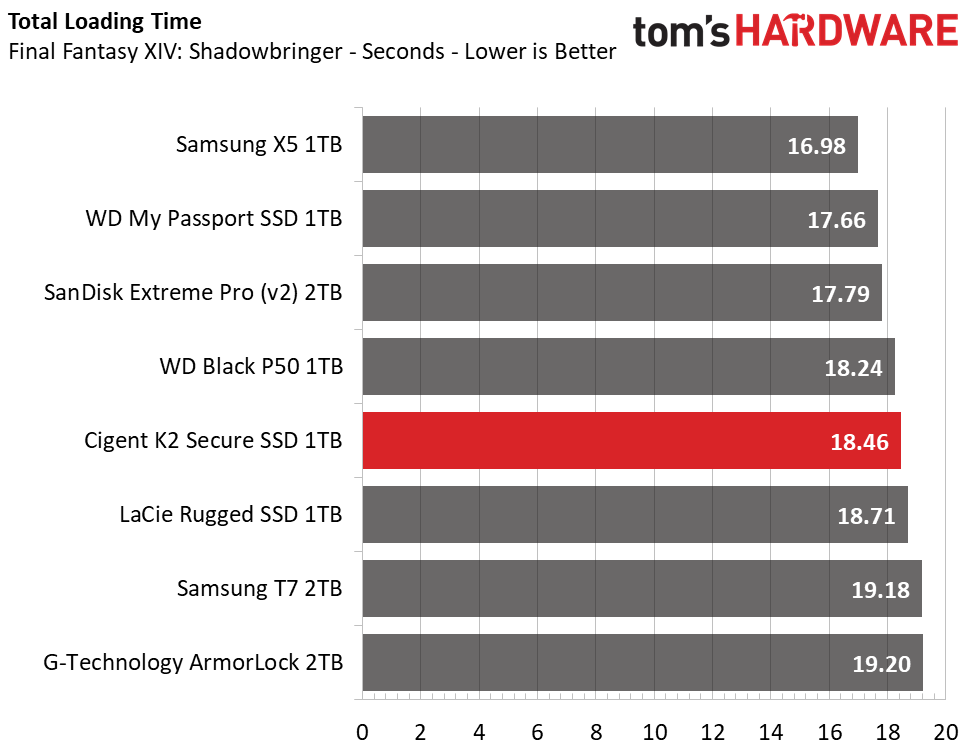
With a total load time of 18.46 seconds, the K2 Secure SSD finds itself smack-dab in the middle of the pack on this test. It delivers competitive game load performance that isn’t too far behind that of Samsung’s much higher bandwidth X5, and nearly on par with USB 20 Gbps competitors.
Transfer Rates – DiskBench
DiskBench is a storage benchmarking tool that allows us to test the transfer or copy performance of a storage device with real data. We test external drives with three file transfers that consist of 25GB of photos (10GB of jpgs and 15GB of RAW photos), 50GB of movies, and 25GB of documents. First, we transfer each folder from a 1TB NVMe SSD to the external device; then we follow up by reading a 3.7GB 7-zip file and a 15GB movie back from the device.
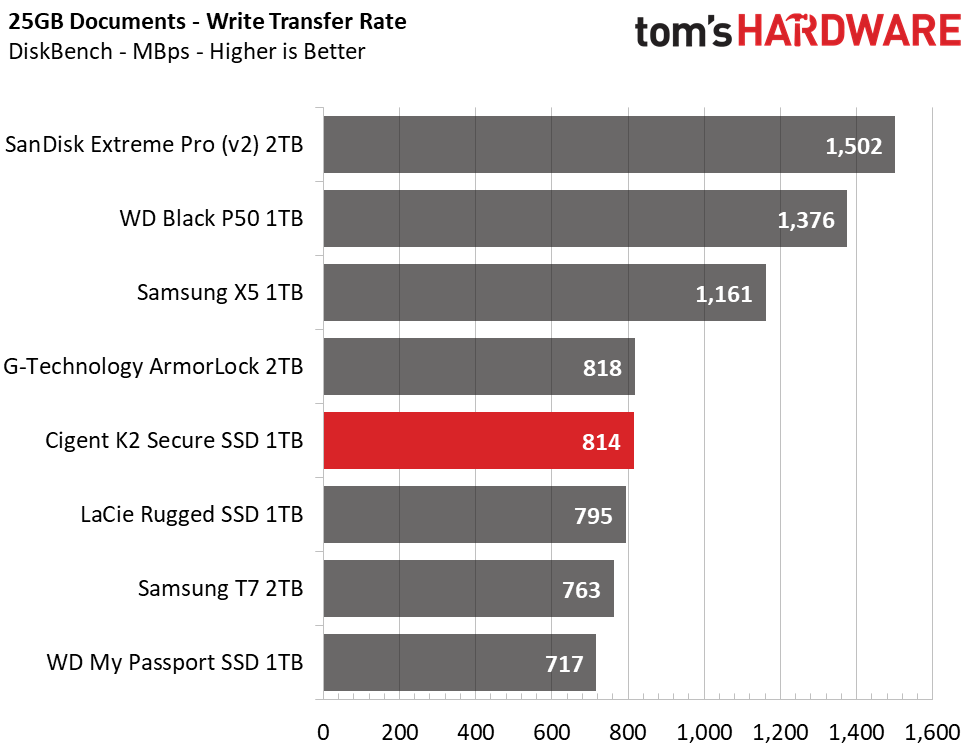
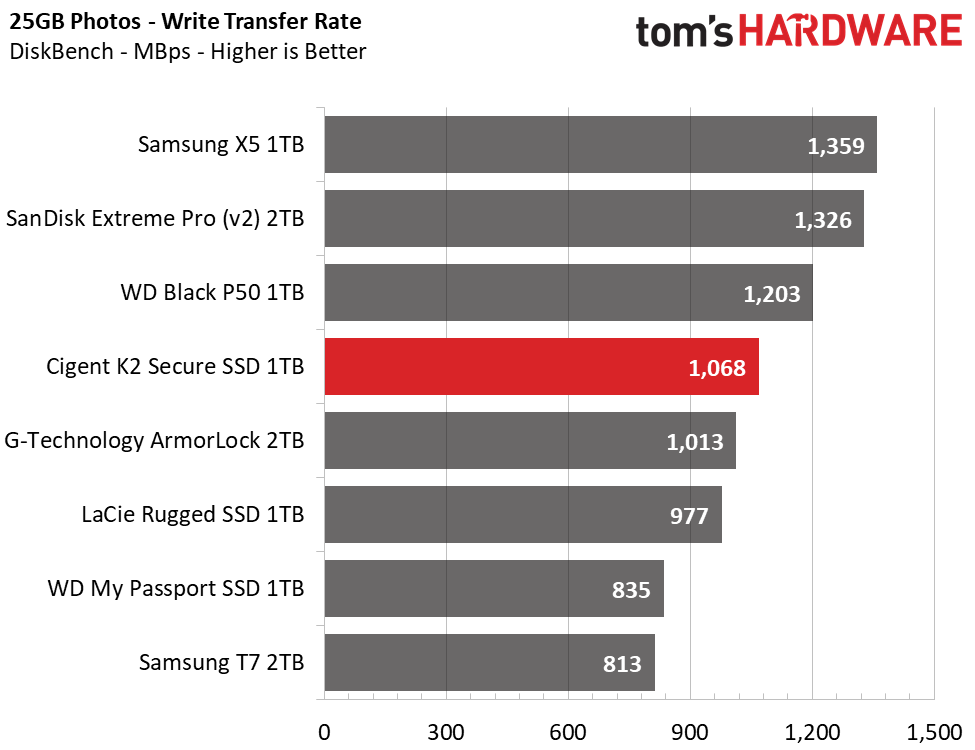
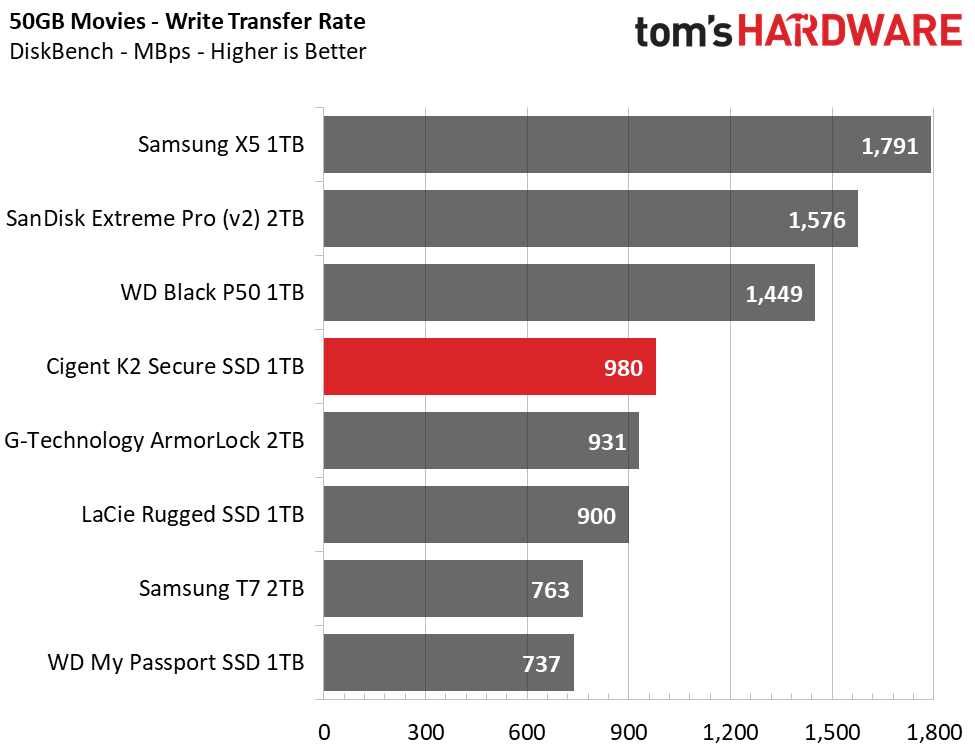
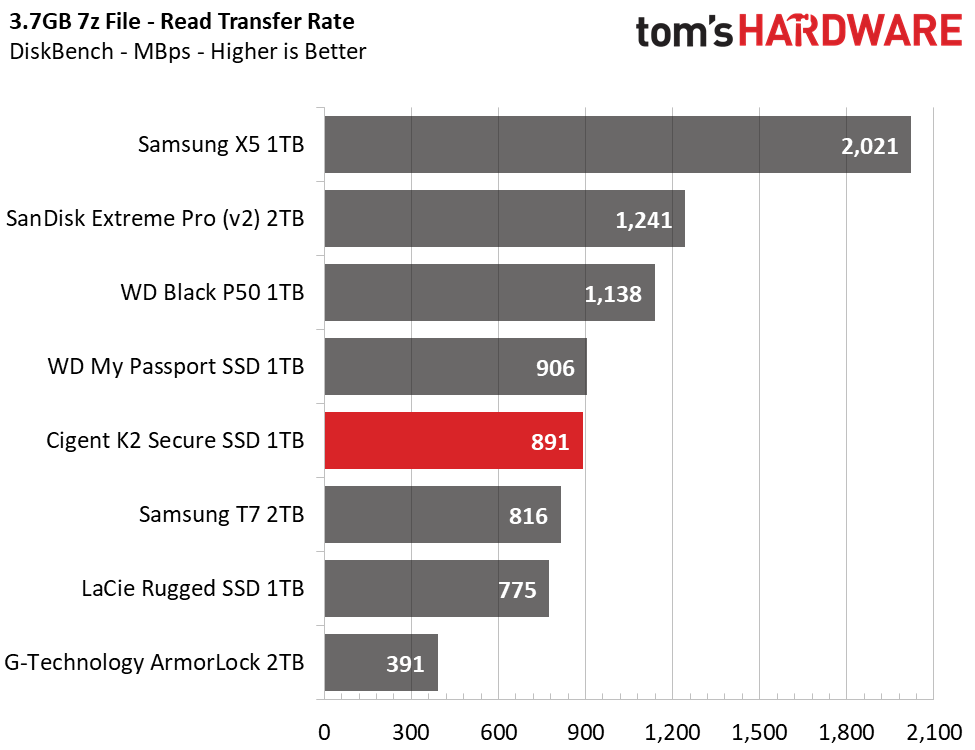
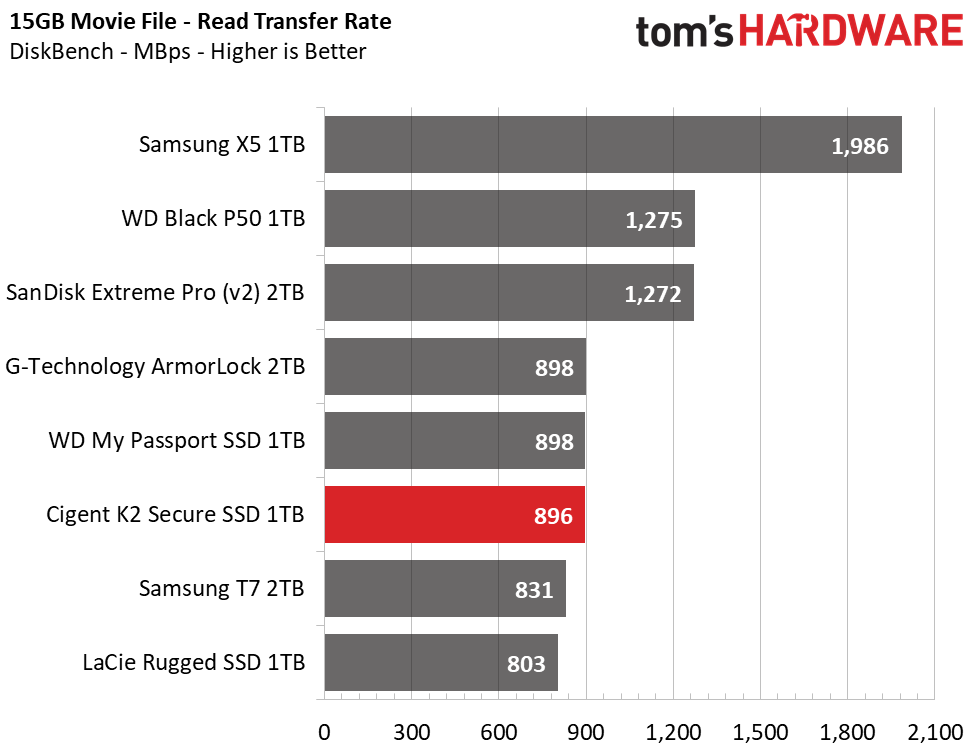
In terms of writing your files, the K2 edges ahead of its USB 10 Gbps competition, offering up some very fast performance results. SanDisk’s Extreme Pro v2 and WD_Black P50 both outpace it, but only because of their higher bandwidth interface and awesome sustained write speed.c
Trace Testing – PCMark 10 Storage Test: Data Drive Benchmark
PCMark 10 is a trace-based benchmark that uses a wide-ranging set of real-world traces from popular applications and common tasks to measure the performance of storage devices. To test drives that store files rather than applications, we utilize the Data Drive Benchmark.
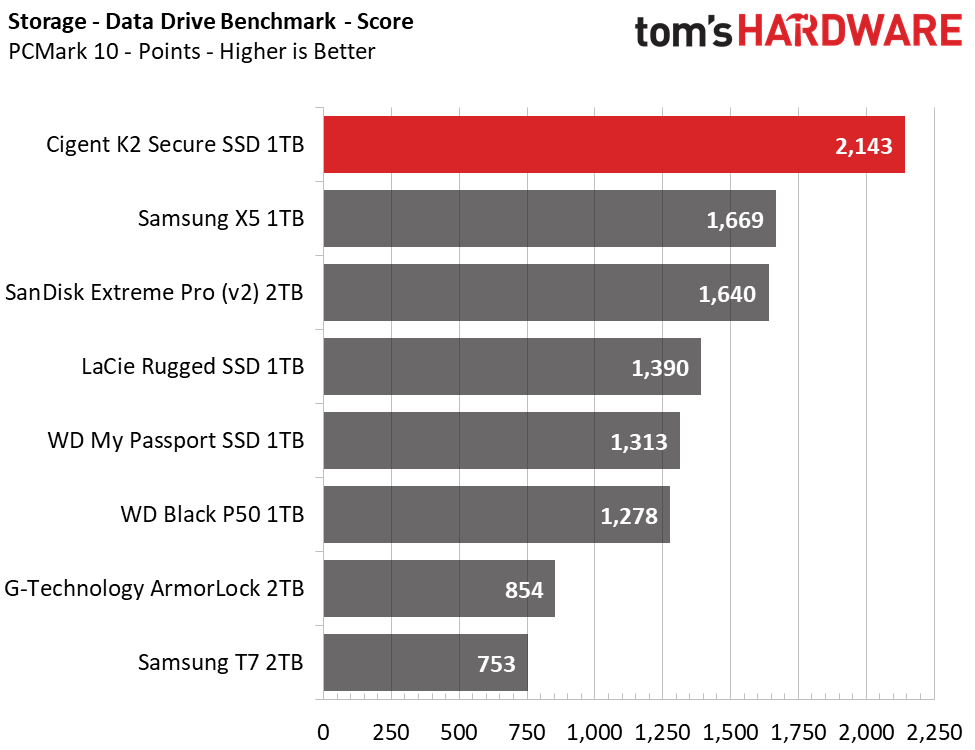
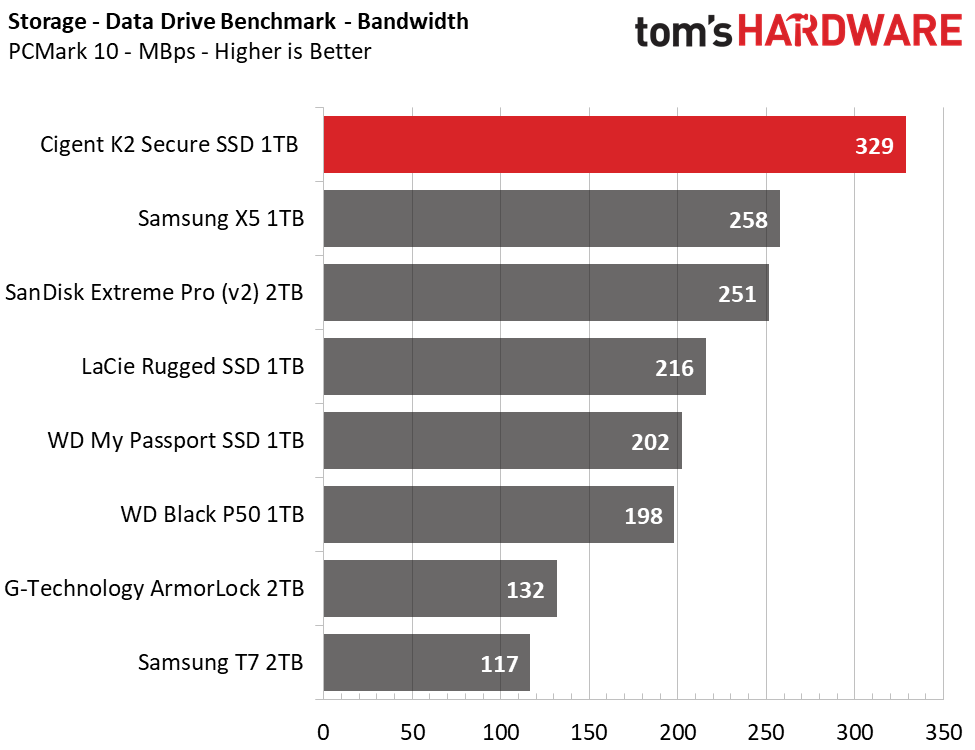
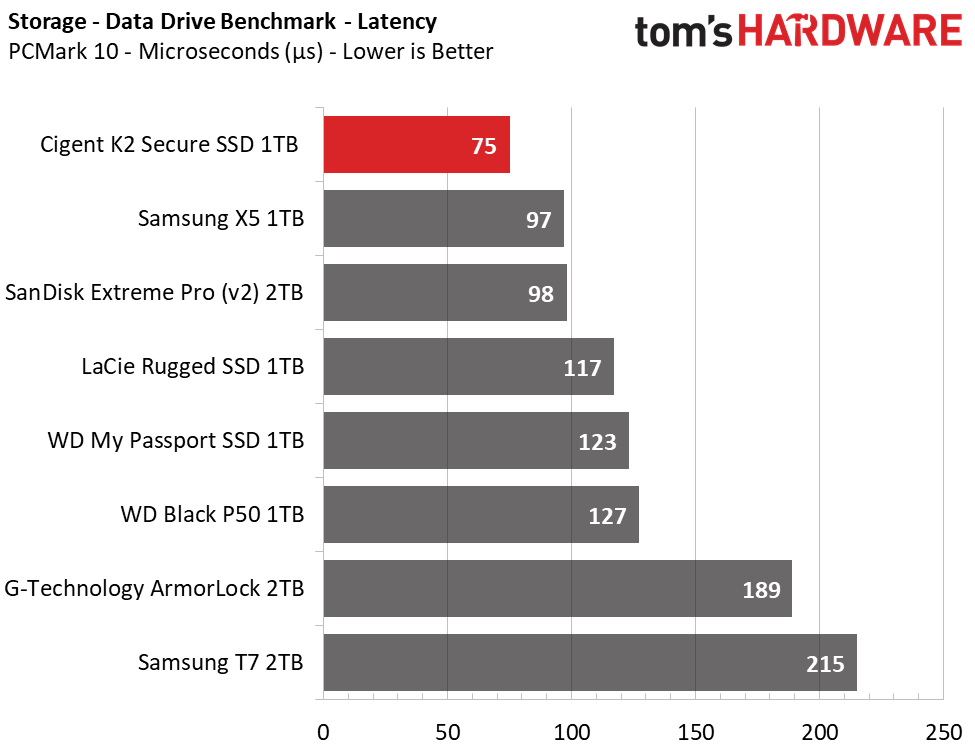
Cigent’s K2 delivers impressive PCMark 10 scores, ranking first place in the test pool. It not only outperformed its USB 10Gbps competition, but also the USB 20Gbps and Thunderbolt 3 competitors by a significant margin.
Get Tom's Hardware's best news and in-depth reviews, straight to your inbox.
Synthetic Testing - ATTO / iometer
iometer is an advanced and highly configurable storage benchmarking tool while ATTO is a simple and free application that SSD vendors commonly use to assign sequential performance specifications to their products. Both of these tools give us insight into how the device handles different file sizes.
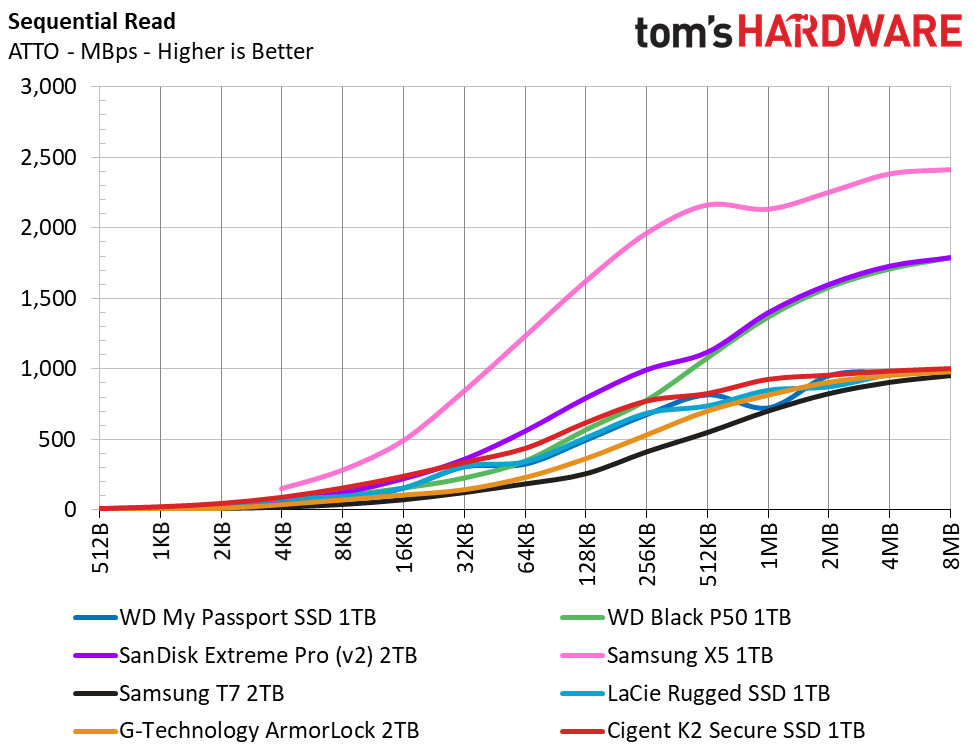
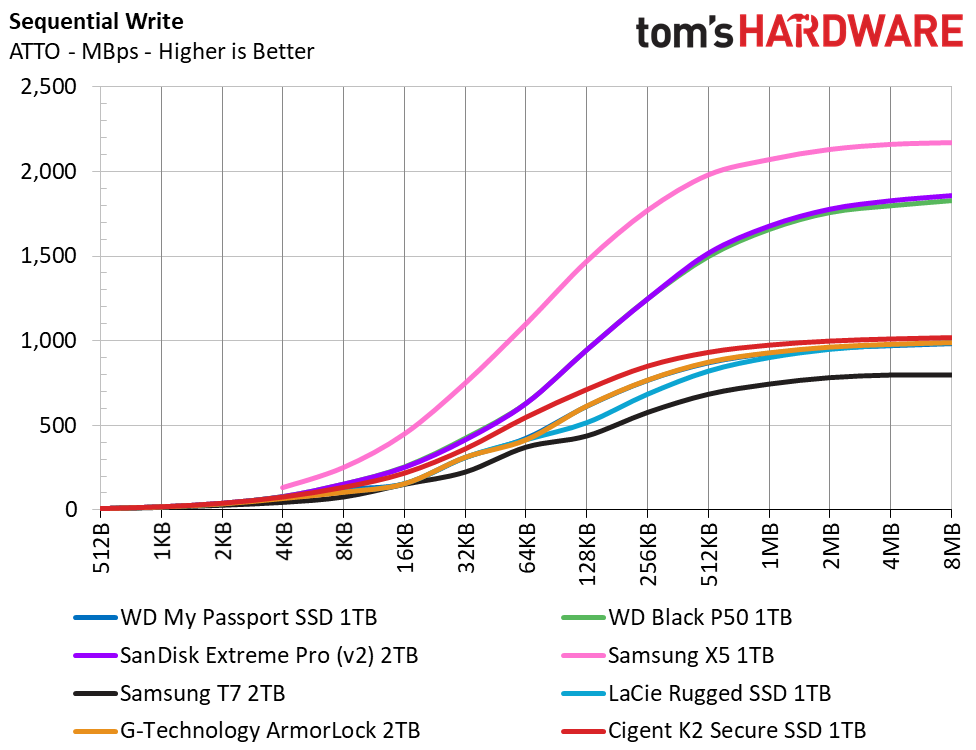
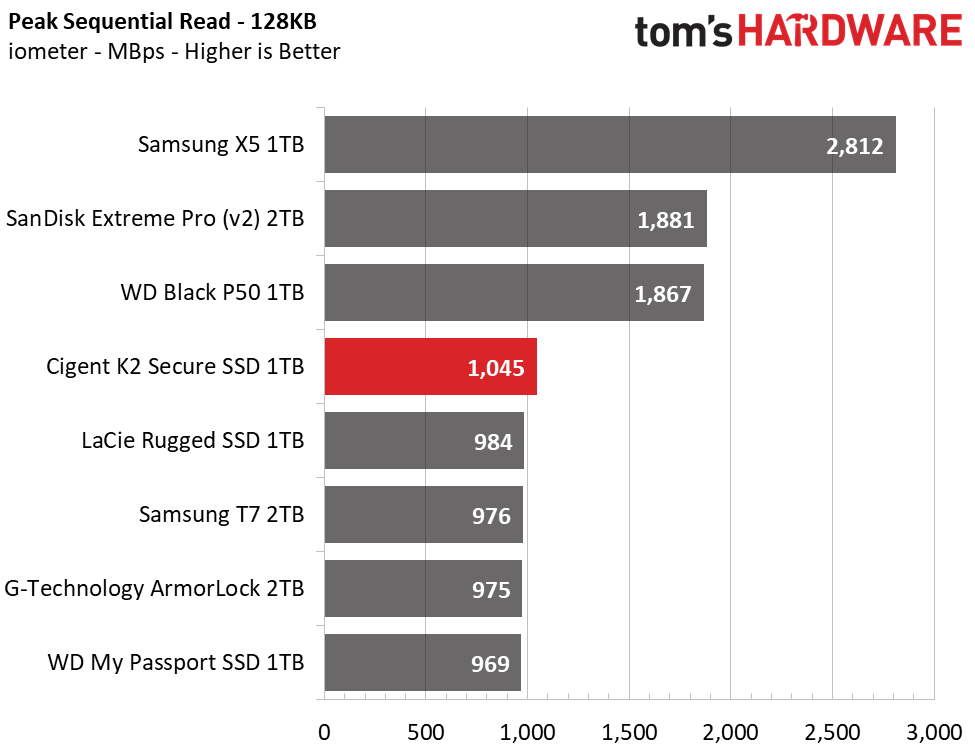
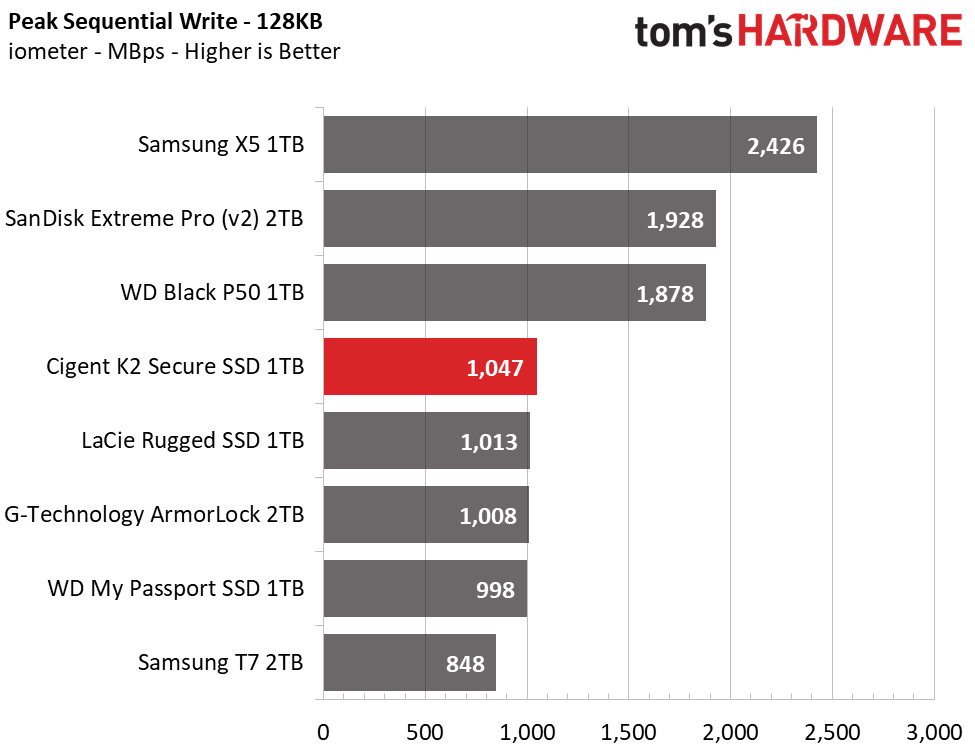
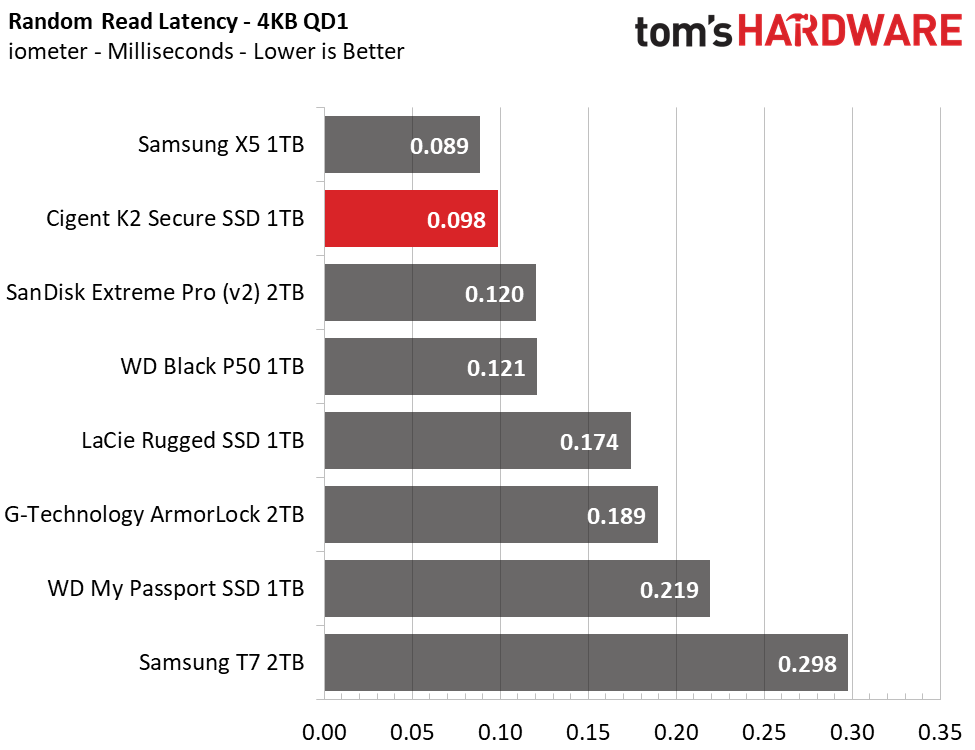
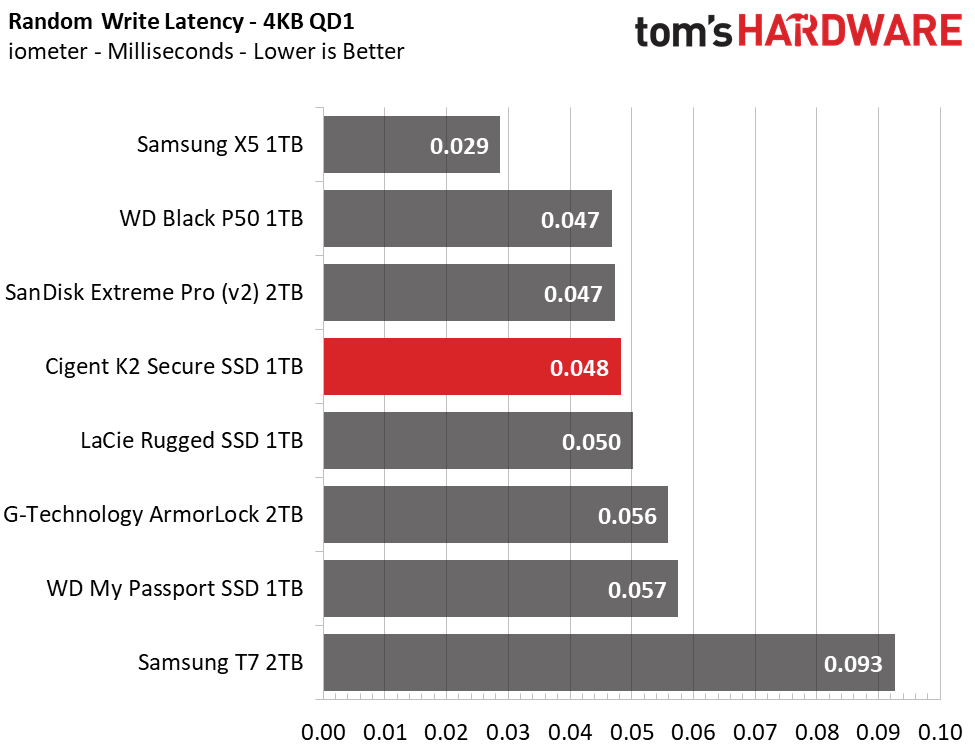
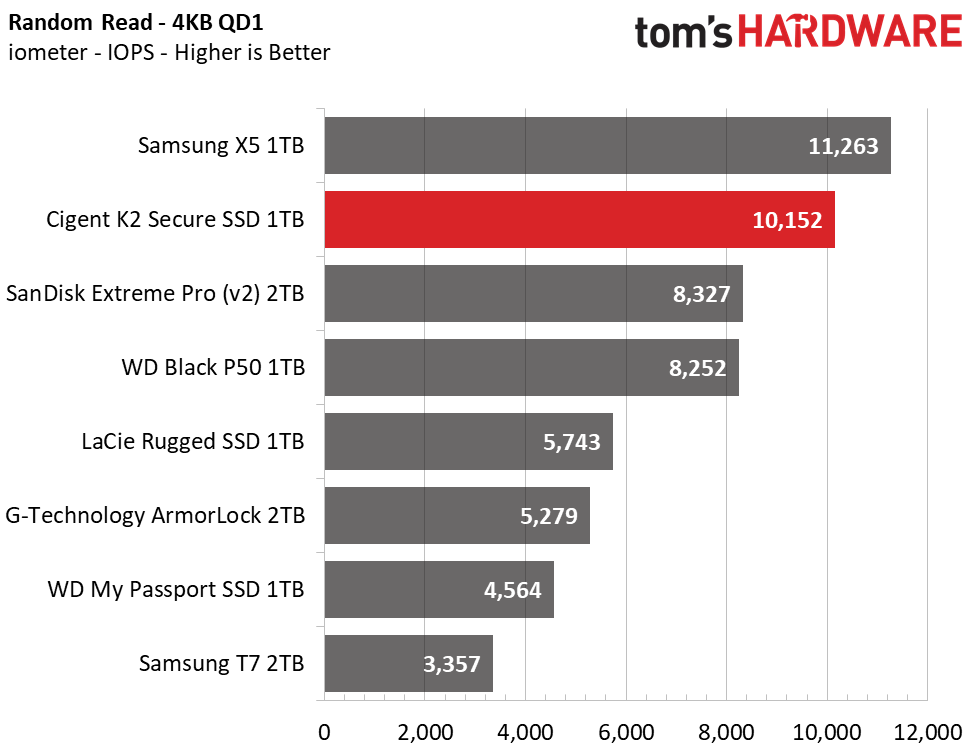
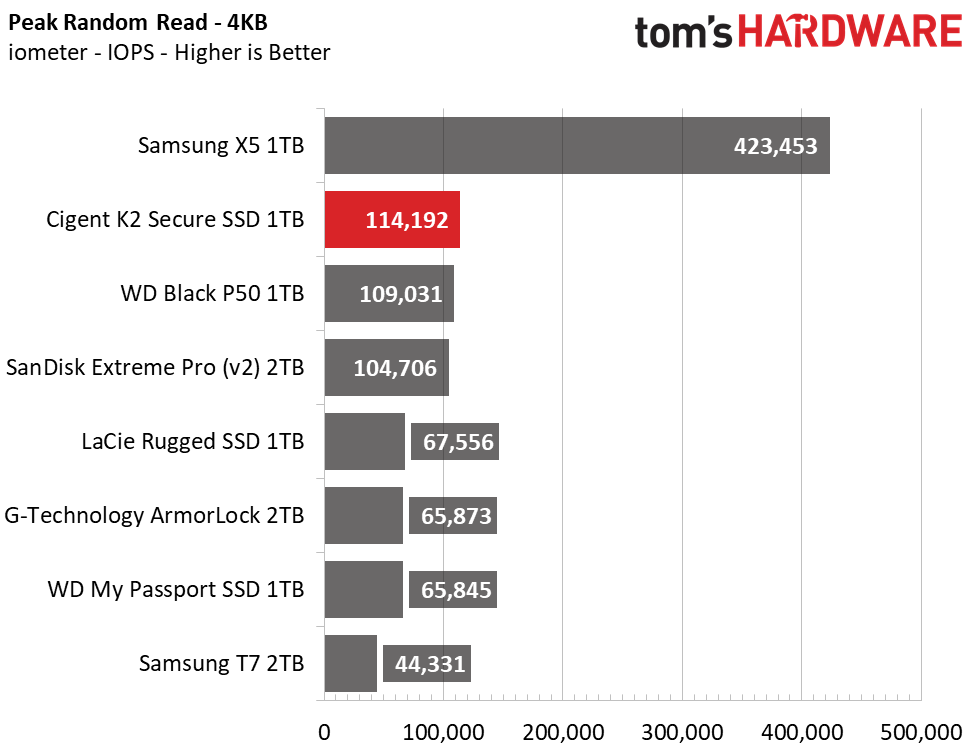
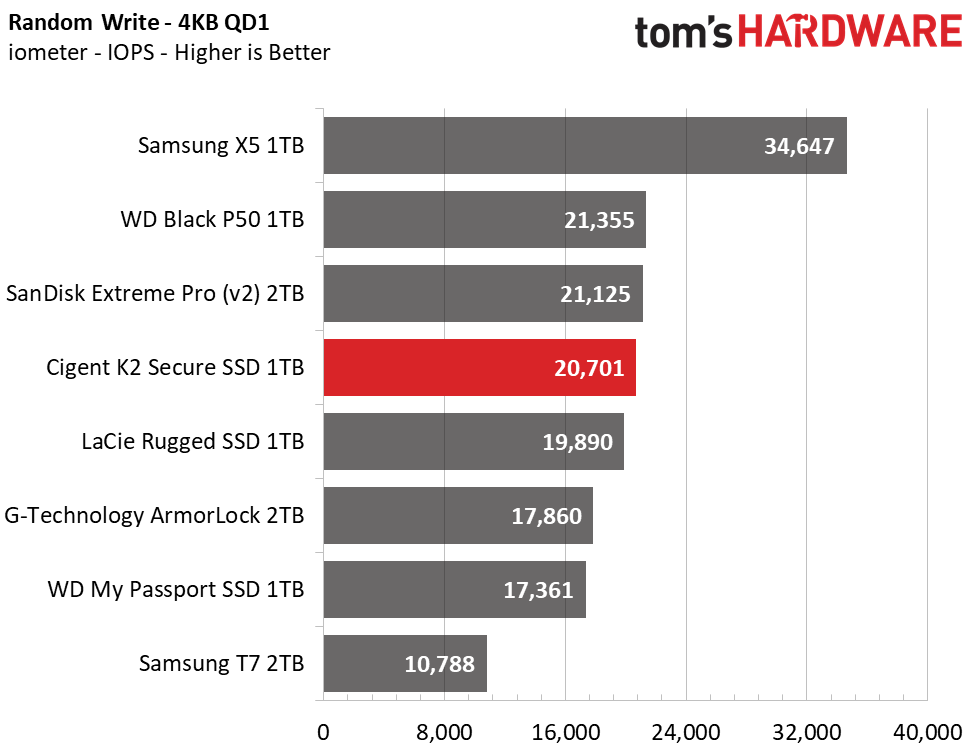
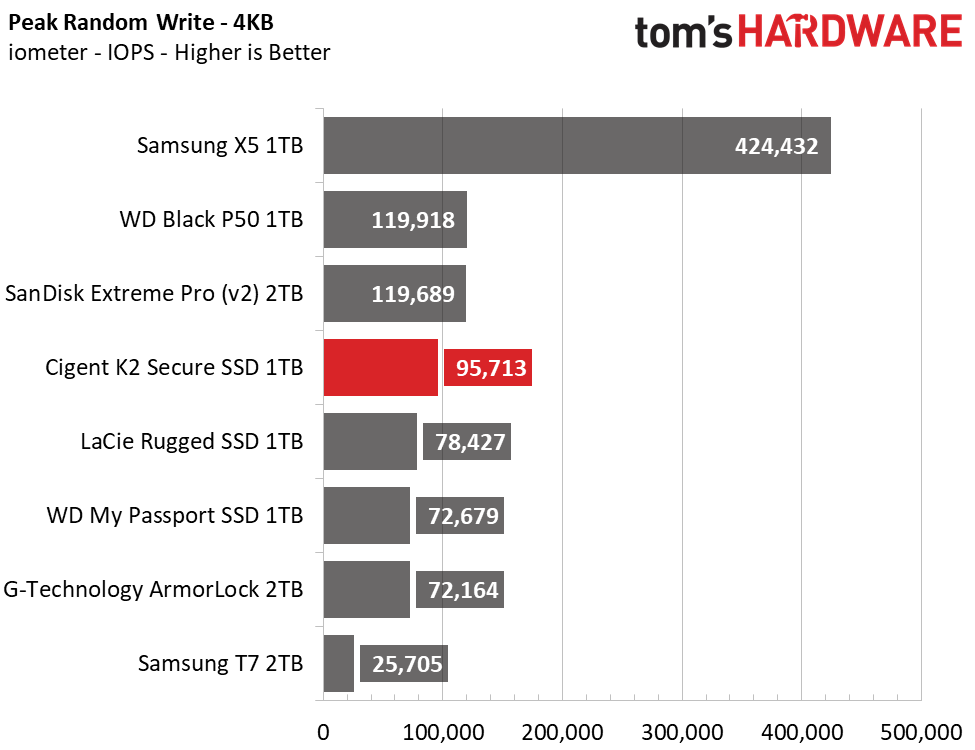
Cigent’s K2 Secure SSD offers solid sequential performance across all block sizes, only limited by what its interface allows. It outperforms most of the SSDs in its class, not only delivering fast sequential speeds, but also rapid random access times.
Sustained Write Performance, Cache Recovery, and Temperature
Write speed and temperature are two important and interrelated metrics for external devices. Official write specifications are only part of the performance picture. Most SSDs implement a write cache, which is a fast area of (usually) pseudo-SLC programmed flash that absorbs incoming data. Sustained write speeds can suffer tremendously once the workload spills outside of the cache and into the "native" TLC or QLC flash.
We use iometer to hammer the SSD with sequential writes for 15 minutes to measure both the size of the write cache and performance after the cache is saturated. We also monitor cache recovery via multiple idle rounds as well as the temperature of the drive via the S.M.A.R.T. data and an IR thermometer to see when (or if) thermal throttling kicks in and how it impacts performance.
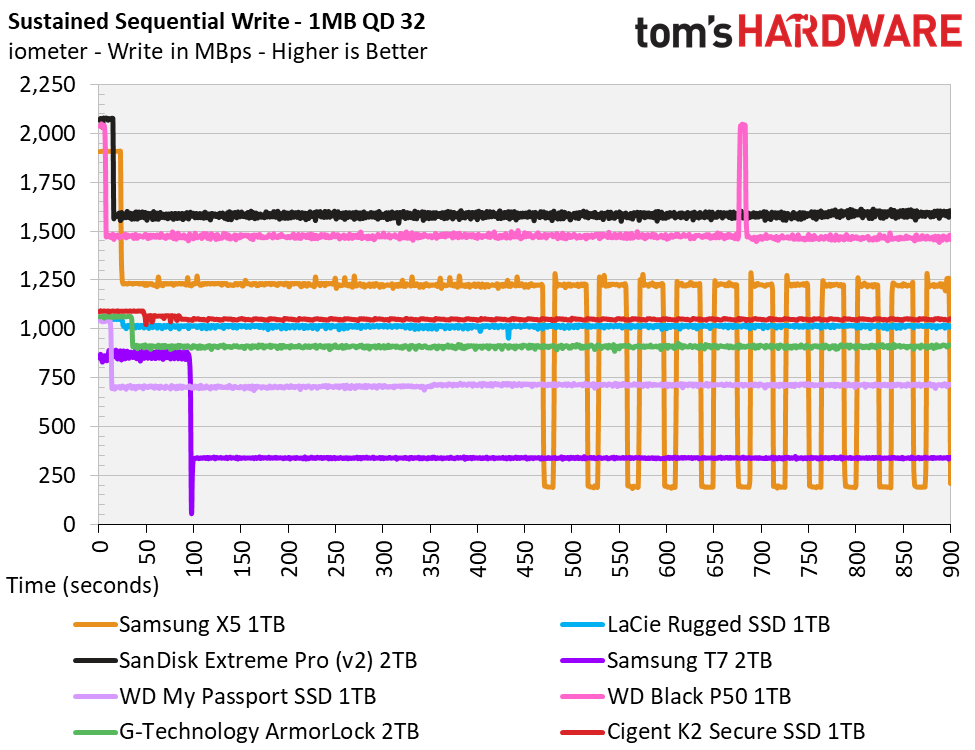
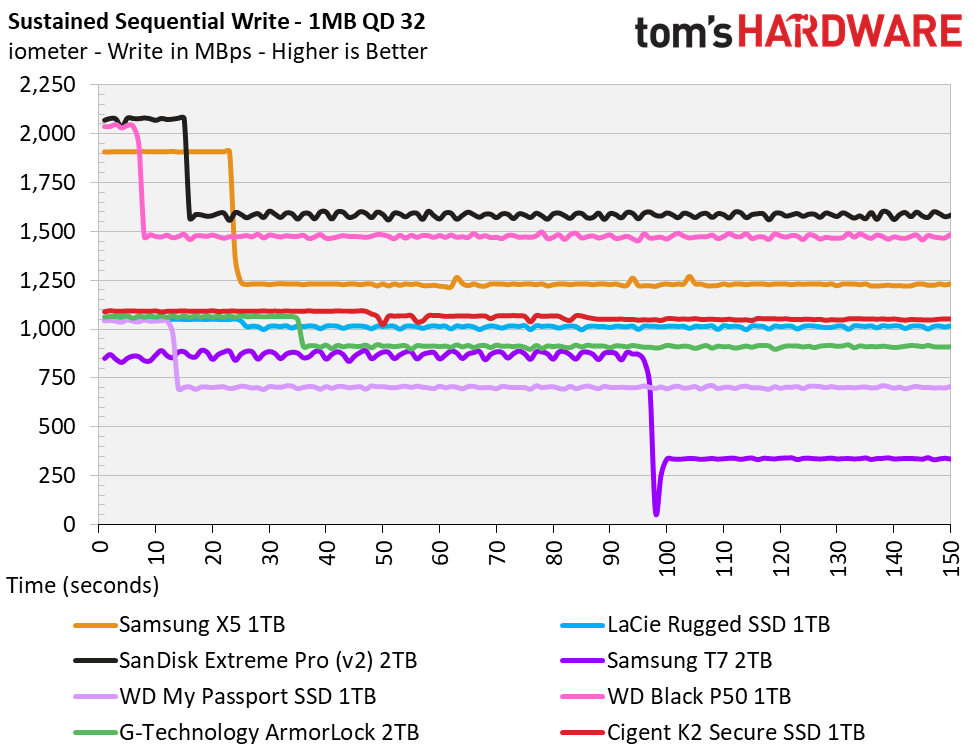
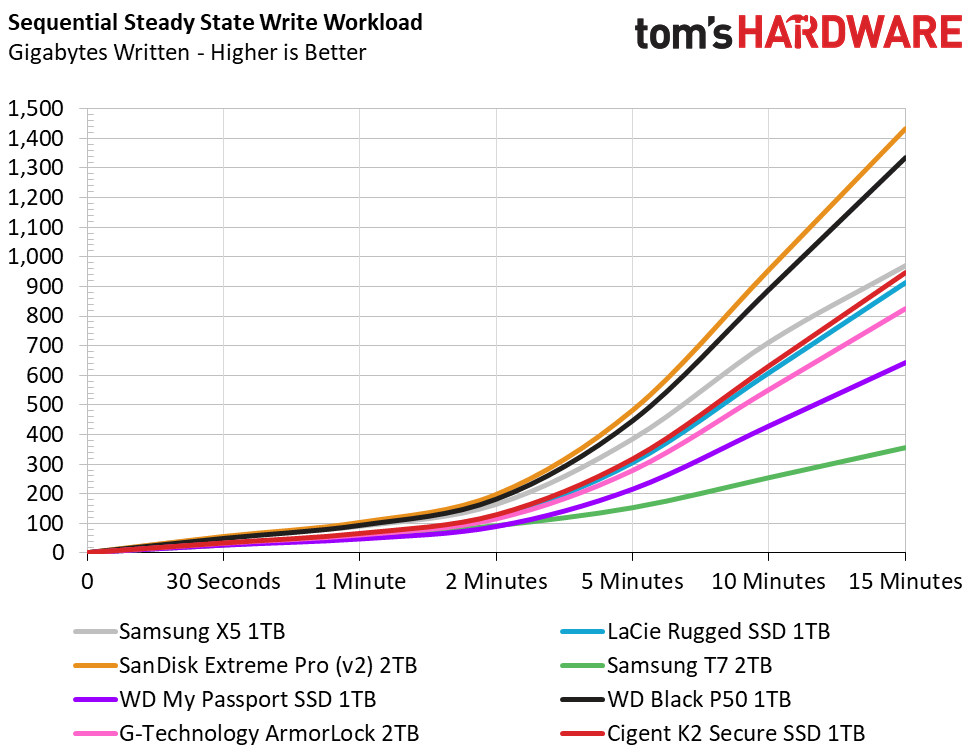
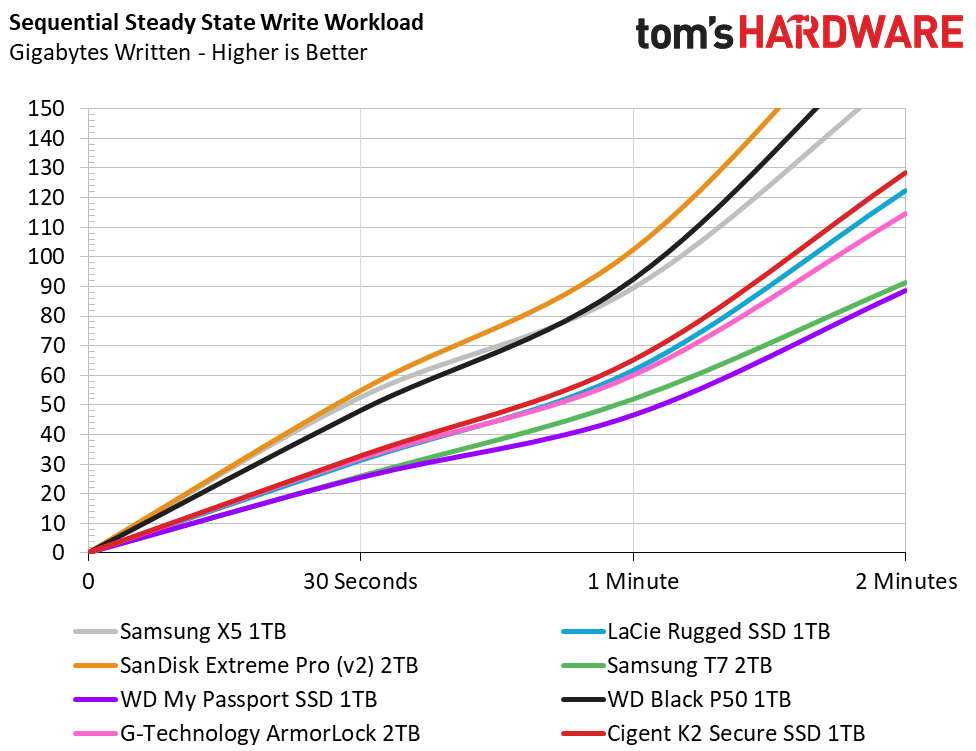
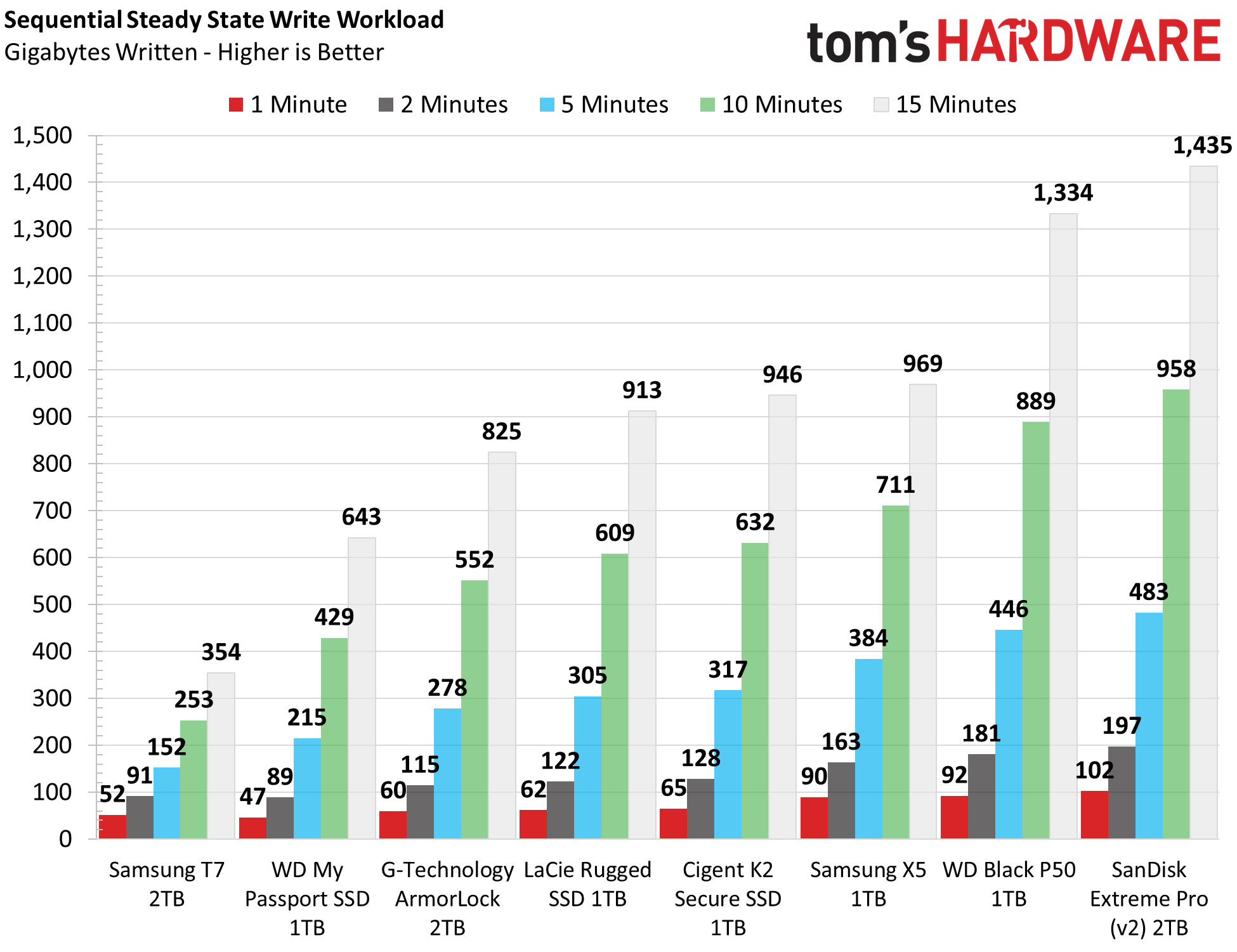
While very small, there seems to be an SLC cache on the K2. The Cogent K2 wrote at a rate of 1,089 MBps for the first 50GB, before degrading to an average write speed of 1,049 MBps for the remainder of the test. Overall, these are solid results, offering high performance that shouldn’t slow down even after being bombarded with writes. After filling the K2 Secure SSD to roughly 50%, the SSD’s surface temperature measured no more than 44 degrees Celsius and no thermal throttling slowed it down.
Conclusion
Cigent’s K2 Secure SSD is a top-performing portable SSD that is as fast as it is secure. Powered by the enterprise-grade Phison E12DC controller, it outpaced the majority of the competition in today’s testing. It is a powerhouse that not only delivers responsive file access but also very consistent write performance when hammered. Without the alliance with Phison, it would be hard for Cigent to break into the secure SSD space as it has with this new drive.
Cigent is primarily a software company though, and it shows. The K2 is expensive, with premium unlocks that ask for more money, exploiting a niche use to leverage its hefty MSRPs while only backing the hardware with a very short warranty. While we normally see portable SSDs backed by three-year or five-year warranties, the K2 comes backed by a measly one year of coverage. This is not indicative of a prosumer product. Not to mention, it took multiple back and forth emails to the company to attain something as simple as official performance ratings...something that should be at the forefront of a hardware vendor’s marketing.
But, while these little nuances perplexed us, the fact that this SSD comes with such robust security, capable of defense against ransomware and other data compromising threats at any given moment, is quite impressive. Cigent’s K2 Secure SSD is most definitely one of the most secure portable SSDs we’ve had our hands-on, though not always the most convenient. While it costs quite a bit up front, its high cost may be worth it for many large companies, compared to losing hundreds of thousands, if not millions of dollars due to poor security practices.
MORE: Best SSDs
MORE: How We Test HDDs And SSDs
MORE: All SSD Content

Sean is a Contributing Editor at Tom’s Hardware US, covering storage hardware.